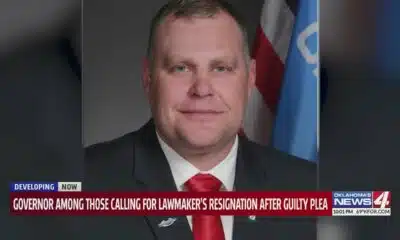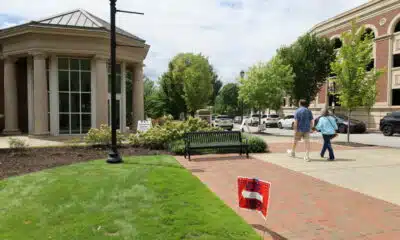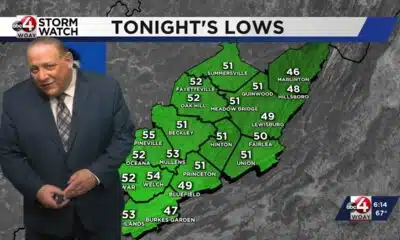( The Center Square) – Even after Texas received and allocated billions of dollars for broadband, much of Kerr County still has limited to no cell phone reception.
Even as cell phone towers have been built across the state, many rural areas in Texas still have little to no cell phone reception, including at the Texas-Mexico border, and in many areas of central and west Texas, including in Kerr County.
For years, residents and vacationers have lived with limited to no cell phone reception during normal weather and none during inclement weather.
This was made painfully clear during the July 4 flash flood event that tore through the county, killing 94 and with at least 161 missing, The Center Square reported.
At a press conference this week, Kerrville City Manager Dalton Rice said many areas of the county, including where children’s camps are located, don’t have cell phone service.
From Kerrville to some of the camps, it can take 45 minutes on a good day in good weather to reach, Rice said.
“Kerr County is a massive, massive area from here to those camps. One of the big challenges that we have, even when you have cell service, a lot of those areas don’t even have cell service or radio communications. Radio towers within the Hill Country becomes very challenging,” he said.
“There’s a lot of areas, especially when weather comes in, where cellular towers are down or you already have bad service,” he said.
In recent years, billions of dollars were dedicated to improving communication infrastructure in Texas, but rural communities still don’t have reliable cell phone service.
In 2021, during the third special legislative session, the Texas Legislature passed SB 8, allocating nearly $16 billion worth of federal funds it received from the American Rescue Plan Act passed by Congress. Among it, $500.5 million, was allocated to develop broadband infrastructure. The legislature passed a bill earlier in the year, which the governor signed into law, to expand broadband into rural areas and underserved communities, The Center Square reported.
In 2023, the state Comptroller’s Broadband Development Office announced that Texas was allocated $3.3 billion in federal funding for broadband expansion – more than any other state, The Center Square reported. The Texas legislature established the BDO in 2021 “to award grants, low-interest loans and other financial incentives to applicants seeking to expand access to and adoption of broadband service in designated areas.”
Funding is made available through the Broadband Equity, Access, and Deployment (BEAD) Program and Texas Match Assistance Program (TMAP) “to bring reliable high-speed internet service to more than 245,000 unserved and underserved locations across the state.”
None of the money has been allocated to date.
On Wednesday, the state comptroller’s office announced it was accepting applications for more than $3.8 billion in available funds from the BEAD and TMAP programs. Applications can be found here.
Last month, the office issued a BEAD Notice of Funding Availability, explaining guidelines for prospective applicants on the Texas SmartBuy website.
Kerr County and officials in other counties have come under fire for not having an emergency warning system in place and for residents and vacationers not being given any warning in order to be able to evacuate. However, if alerts had been issued through cellular devices, residents and vacationers in Kerr County would likely not have received them because of poor cell phone reception.
Rice said authorities would be considering better communication systems, including cell service towers, radio communications, emergency alerting going forward.
After ongoing emergency protocol failures continue to emerge, Gov. Greg Abbott prioritized emergency response as a top legislative priority for a special legislative session slated to begin July 21. Legislative proposals include creating a flood warning system to improve early warning systems and other preparedness infrastructure; creating flood emergency communications; appropriating relief and recovery funding to assist Hill Country flood victims; and creating a statewide natural disaster preparation and recovery plan, The Center Square reported.








































